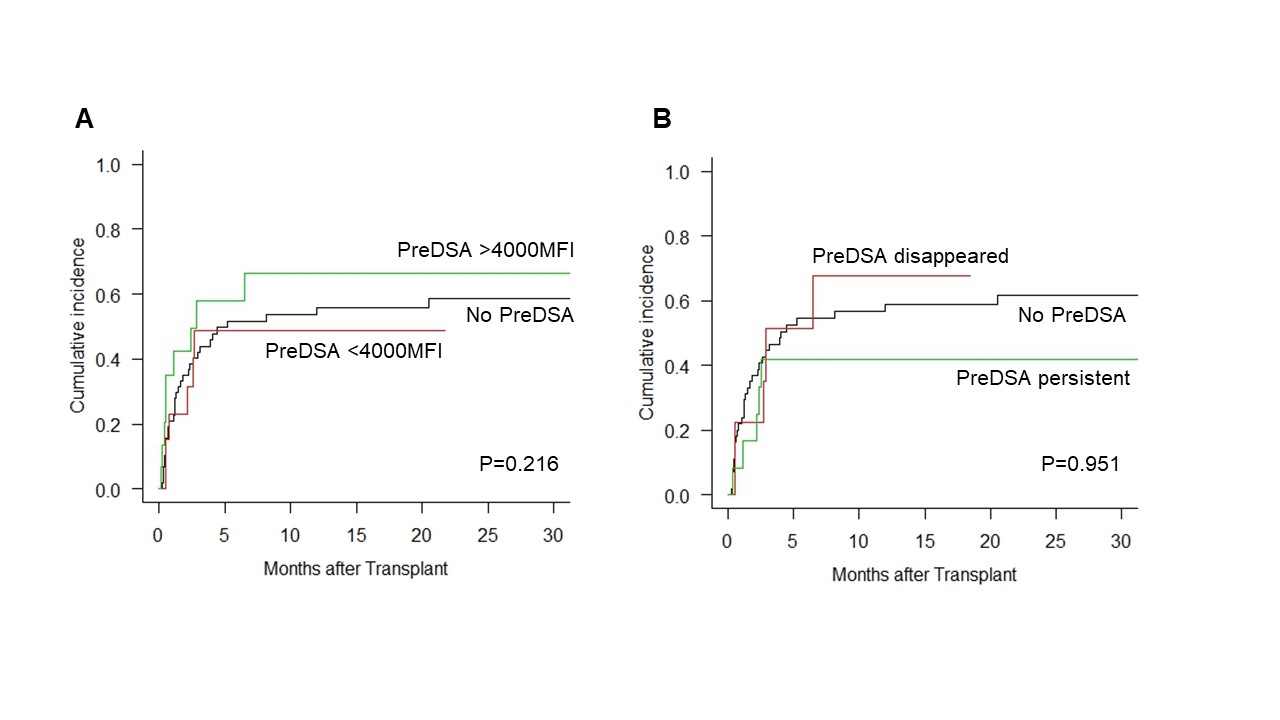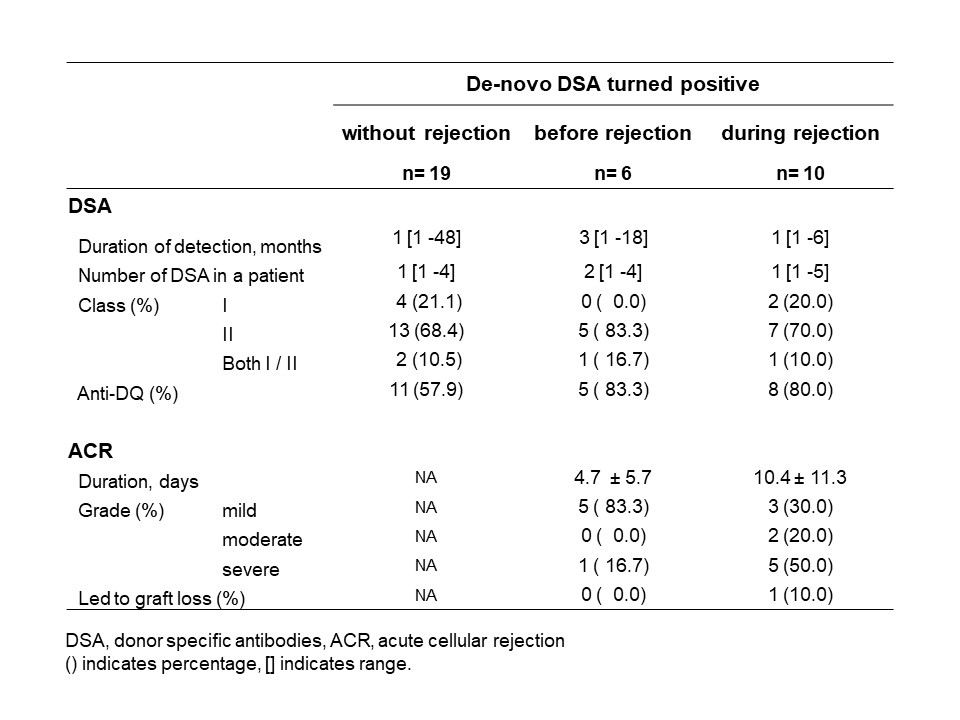Backgrounds: There has been accumulating evidence that donor-specific antibody (DSA) has a negative impact on the outcome of visceral allografts. Prospective DSA monitoring allows detection of circulating DSA without histological evidence of acute rejection. However, its association with acute rejection and natural course without treatment are yet to be determined.
Methods: Between 2012 and 2019, 94 visceral transplantation with 25 liver-contained grafts were performed at a single institution. Induction therapy for preformed DSA included rituximab or bortezomib. DSA were monitored at 1 and 2weeks, followed by 1, 3, and 6 months, and yearly after transplant. De-novo DSA was not treated without histologically proved rejection. The characteristics and impact of DSA in terms of predictability of rejection, and its correlation of severity of acute rejection were analyzed.
Results: One-year cumulative rejection rate in the entire cohort was 67%. With the protocol of anti-B cell therapy, preformed DSA did not increase the risk of rejection, regardless of the status of liver-free allografts, high titer (>4000 MFI) or persistence of DSA.

De-novo DSA was detected in 32 patients (35%) with an HLA-ABDR mismatch as the only predictor (Odds ratio 1.7, p=0.036). De-novo DSAs were more likely to be class II with high inclusion of anti-DQ DSA (69%). Prospective monitoring detected de-novo DSA in 25 occasions without ongoing rejection. Accordingly, it turned negative without rejection episode in 19 (76%) (Silent DSA), while subsequent rejection occurred in 6 occasions (24%) (DSA before rejection). In 10 occasions, de-novo DSA turned positive during the rejection episodes (DSA during rejection). The rejection episodes that induced DSA circulation was with a more severe grade.

Conclusions: Increased immunosuppressant induction to treat preformed DSA may compensate the rejection risk, but can negatively impact the overall graft survival. With prospective monitoring and no preemptive treatment, high proportion of de-novo DSA was self-limiting, and rarely precipitated rejection episodes particularly with a severe grade.
.jpg )